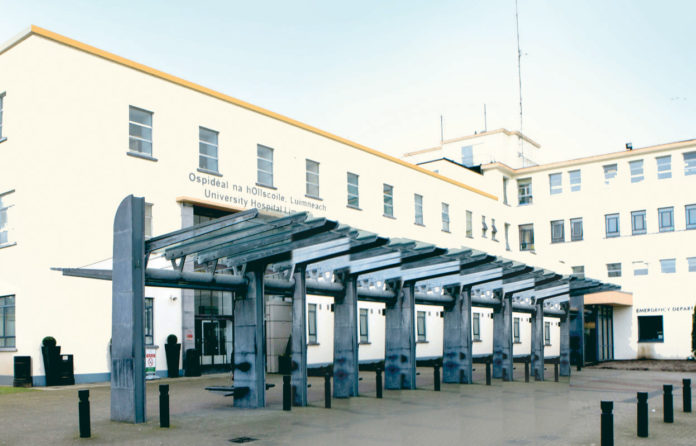
ELECTIVE activity, including surgeries and diagnostic procedures, that are currently cancelled at University Hospital Limerick, are expected to resume from this Monday.
UHL, which is the most overcrowded hospital in the country, announced last Tuesday it had cancelled “all elective activity” as part of plans to ease pressure on resources and its Emergency Department which has been experiencing high levels of patient attendances.
Sources close to management said the hospital’s plan to resume elective activity on Monday remained on track, after the number of patients on trolleys had significantly reduced from 80 on Wednesday to 41 on Thursday.
Twelve patients were awaiting treatment on chairs at the hospital on Wednesday due to there not being enough beds or trolleys.

- External Walls: Up to €8,000 Grant
- Attic: Up to €1,500 Grant
- Cavity Walls: Up to €1,700 Grant
- Internal Dry Lining: Up to €4,500 Grant
In the 24-hour period up to midnight September 16th, 251 people had attended the hospital’s Emergency Department, “one of the highest figures ever recorded at UHL,” a UHL spokesman said.
At 8am Thursday, there were 32 patients on trolleys in the ED and nine patients on trolleys on wards, according to statistics published by the INMO.
There were 220 patients waiting for a bed in hospitals across the country.
It emerged Thursday that a 68-bed field hospital erected at the Sports Arena on the grounds of University of Limerick last June – which has been providing extra capacity for non-Covid UHL patients, is to close and revert to UL “in the coming weeks”.
Staff at the temporary (ICF) Intermediate Care Facility “will then transfer to support” new bed capacity coming on stream at UHL.
Meanwhile, UHL said current nursing deficits at the hospital “stands at approximately 84 whole-time equivalent staff” which equates to 4.8% of the hospital’s total nursing workforce.
“This figure does not include temporary vacancies resulting from staff on maternity leave, sick leave etc.”
“We utilise agency and overtime to cover temporary vacancies and we use every opportunity to convert agency workers to permanent staff, and during the pandemic we have been very grateful for nursing retirees, exiting staff on career breaks, unpaid leave and rescued hours who have returned or increased their hours to support essential services,” added the spokesman.
A nursing recruitment campaign is ongoing and “all current student nurses and midwives graduating from University of Limerick have been offered permanent contracts”.
UHL also confirmed “a further 150 nurses from overseas, will be starting on a phased basis from the beginning of November”.
“As of the end of August, 2020, we had recruited approximately 150 staff nurses in the year-to-date with an additional 16 staff returning from retirement or career breaks,” the spokesman said.
The recruitment process of nursing staff at UHL is currently 12 weeks on average.
The hospital said that it is “committed to consultation and engagement” with trade unions on staffing levels and extra bed capacity, “in the midst of this public health emergency”.
Yesterday, the INMO called on the Minister for Health to urgently intervene and immediately appoint “an external crisis management team to oversee governance” at UHL.
The union claimed a “HSE ‘no tolerance’ policy for overcrowding during COVID was clearly being broken, along with social distancing guidelines, placing staff and patients at risk”.
An Acute Medical Assessment Unit (AMAU) at UHL has been operating as an emergency department for non-COVID patients throughout the pandemic.
The hospital apologised that a number of patients had been asked to “wait on a chair” due to capacity issues.
“When the unit becomes very busy and all beds/trolleys are occupied by patients who are being assessed or who have been admitted, we may ask patients to wait on a chair,” the spokesman said.
“We strive to limit the number of patients who wait on chairs and length of time they do wait but this is not always possible, we apologise that this is the case.”
There are 19 assessment bays in the AMAU and eight in a Surgical Assessment Unit (SAU).
The spokesman added that “every effort is being made to maintain social distancing while patients wait (for treatment).”

